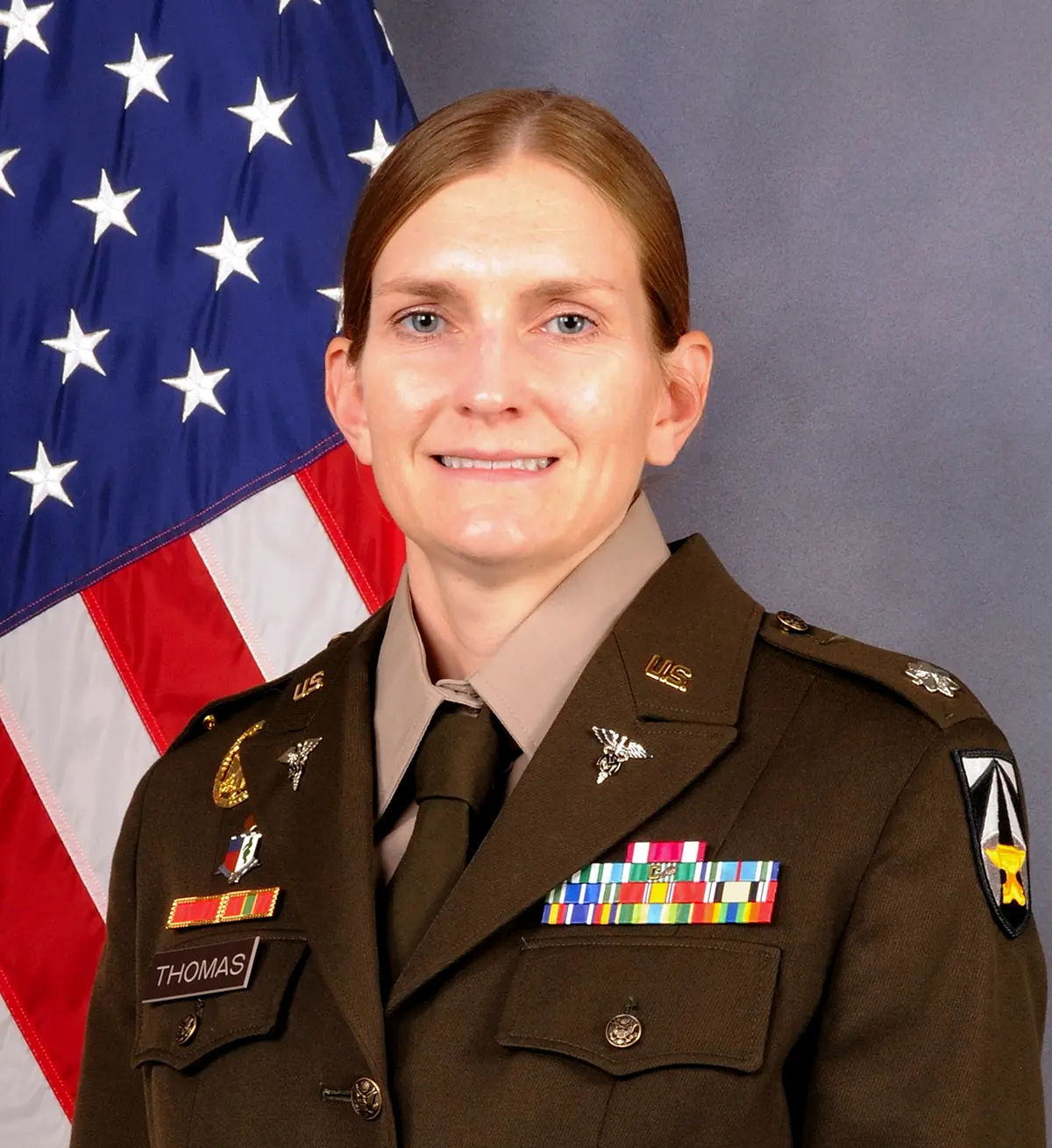
Sleep for Strength
“One of the things I learned as a division psychiatrist is that it’s a basic need that impacts everything in your life: your physical health but also your mental health,” she says. “So many soldiers underestimate the power of a good night’s sleep.” Without it, she says, a unit can end up sacrificing its performance and ability to do the mission successfully.
Thomas’ expertise in sleep medicine was honed during a fellowship at Walter Reed National Military Medical Center in Bethesda, Md. This training provided her with the tools and vocabulary to help service members understand and prioritize healthy sleep habits. “Not all leaders are fully aware of it,” she says. “Often, sleep is the last thing my patients think about when they’re working to improve their mental or physical health.”
Thomas is focused on changing the narrative around sleep within military units and teams. With a group of neuroscientists, she tackles issues such as revising sleep policies across the military, teaching soldiers how to adapt to different time zones, testing and developing sleep technology innovations and managing sleep in extreme weather conditions.
The foundation of Thomas’ work as a psychiatrist in the Army is building trust and relationships. “Psychiatrists are stigmatized to a certain degree,” she says, noting a common hesitancy to seek mental health support. “You have to earn trust and build relationships, be embedded with the unit, spend time with folks. It’s important just to be where the soldiers are.” This approach helps her get to know soldiers, their personalities, their jobs and how they spend time when they aren’t working, she says. Then, when a person needs support, it becomes easier for them to seek her help.
Thomas helps her patients manage a wide range of issues, including depression, anxiety, sleep difficulties, trauma, suicidality and relationship problems. By addressing those concerns with a holistic approach, her goal is to ensure soldiers are equipped to meet the demands of their service with resilience and strength.
“One of the things I valued most about my Bucknell education was the ability to engage with professors one-on-one,” says Thomas, who double-majored in biology and sociology with a minor in classics. “I had the opportunity to be a teaching assistant for and perform research under Professor Carl Milofsky P’93, P’04 [sociology], who helped me realize the importance of community in health. I’ve thought about this throughout my military career because improving mental health is more than just performing therapy or medical management with a single patient. You have to understand the military community, how the institution establishes values, and the importance of the relational influence of leaders who can shape mental health in units.”